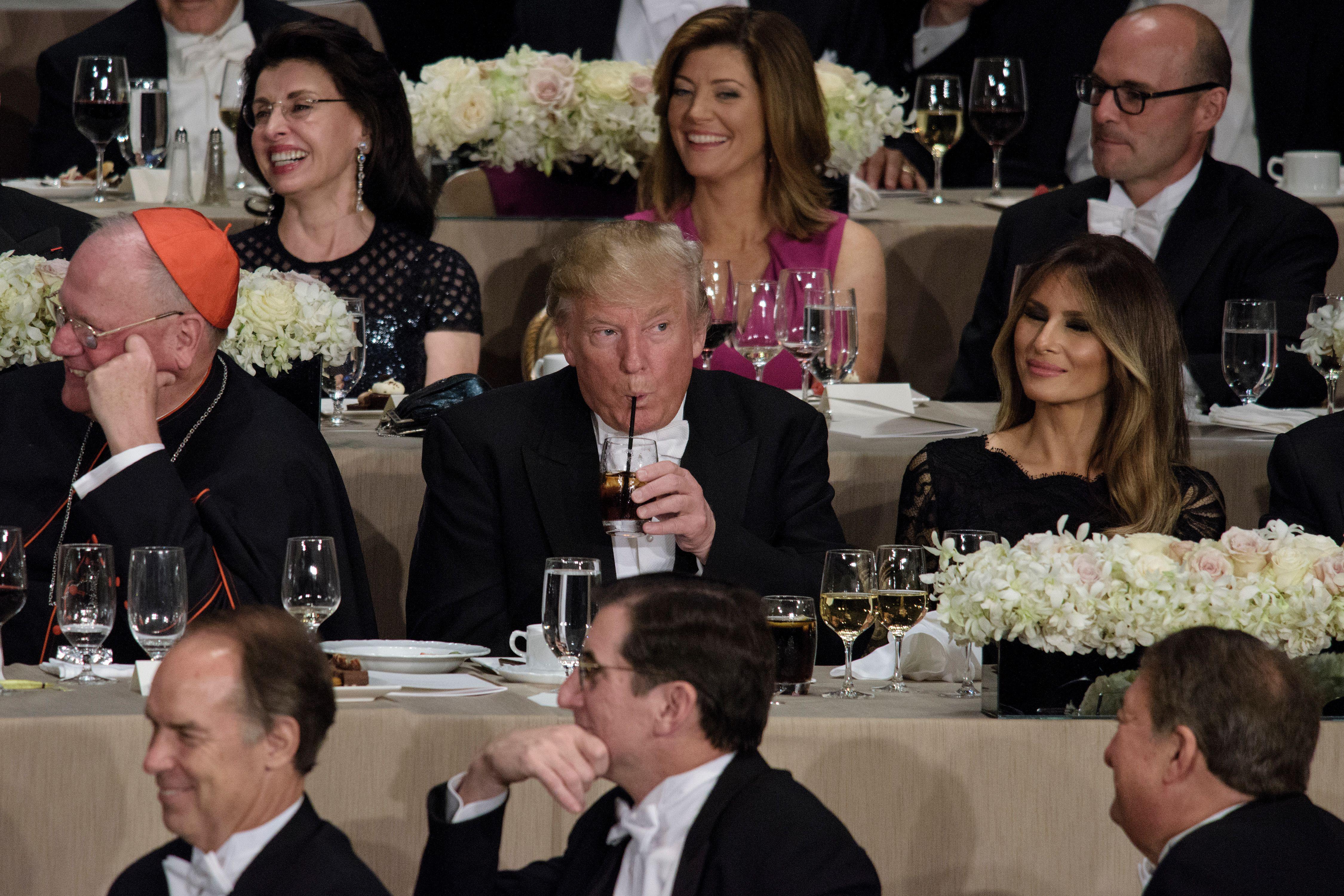Almost a year into his presidency, the New York Times publishes a long, inside look at President Donald Trump’s White House to paint a picture of a leader who is still struggling to learn the basics of how to deal with the daily grind of his office. Part of it is a lot of caffeine. Trump drinks as many as 12 Diet Cokes daily, according to the piece by Maggie Haberman, Glenn Thrush, and Peter Baker.
While Trump’s TV-watching habits have often been a topic of conversation, the sheer amount of time the president spends with a television on is astounding. “Mr. Trump spends at least four hours a day, and sometimes as much as twice that, in front of a television, sometimes with the volume muted, marinating in the no-holds-barred wars of cable news and eager to fire back,” the reporters write. The president is also eager to comment on whatever is on TV and “he shares thoughts with anyone in the room, even the household staff.”
But Trump likes to downplay his habit. Reporters on Air Force One were surprised when the president suddenly talked about his TV watching habits on the way to Vietnam. They didn’t know that he had been one of 51 questions sent to the White house for the Times piece. “I do not watch much television,” he insisted. “I know they like to say—people that don’t know me—they like to say I watch television. People with fake sources—you know, fake reporters, fake sources. But I don’t get to watch much television, primarily because of documents. I’m reading documents a lot.”
Yet those on his staff keep track of certain news shows to an obsessive degree, knowing that whatever is on cable news will have a profound impact on their boss’s mood.
It isn’t just television. Trump is obsessed with media in general and as much as he likes to rail against reporters he “is still delighted when he sees his name in the headlines.” And he gets nervous when it isn’t there, which would go a long way to explain his sometimes difficult-to-believe Twitter rants.
The Times profile also notes that over the past few months Trump has gradually come to understand that his office is not as all-powerful as he once thought. Although he earned the ire of several lawmakers he liked to talk to as if they were his subordinates, he is learning to be more diplomatic now: “He is coming to realize … the need to woo, not whack, leaders of his own party to get things done.” The learning curve has been particularly steep because he was woefully unprepared for the job. “It would be like you or me going into a room and being asked to perform brain surgery,” said Rep. Nancy Pelosi. “When you have a lack of knowledge as great as his, it can be bewildering.”
